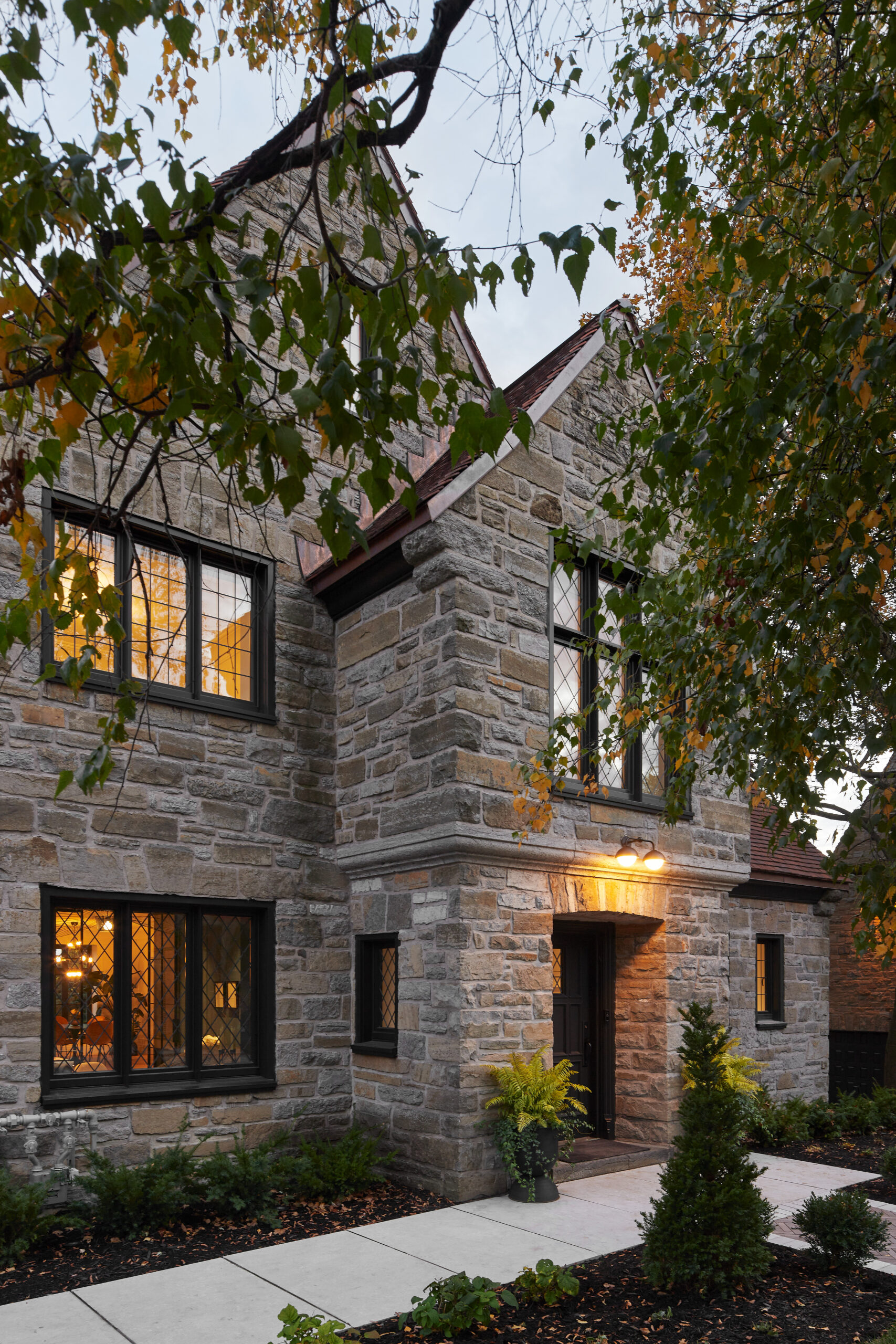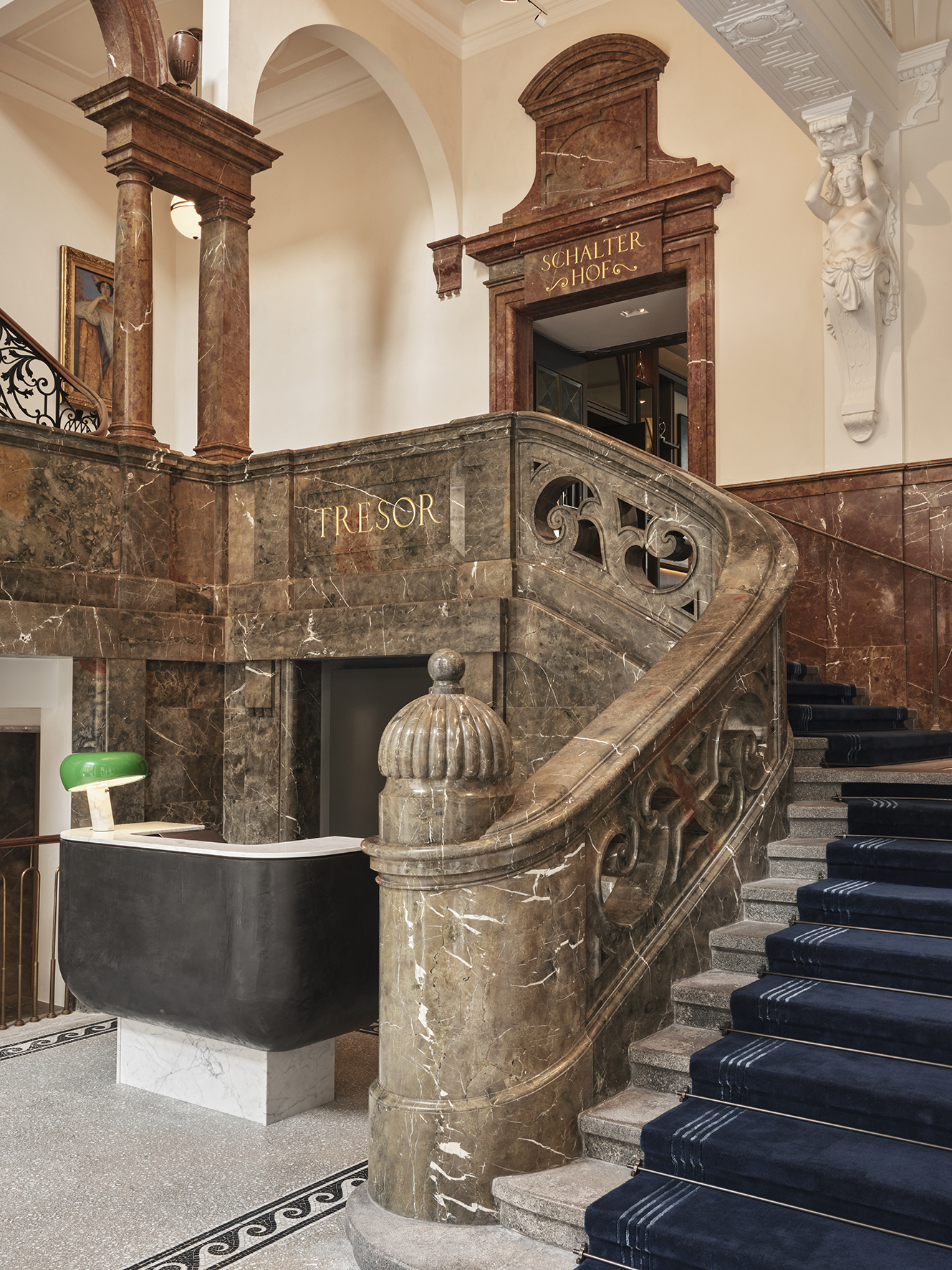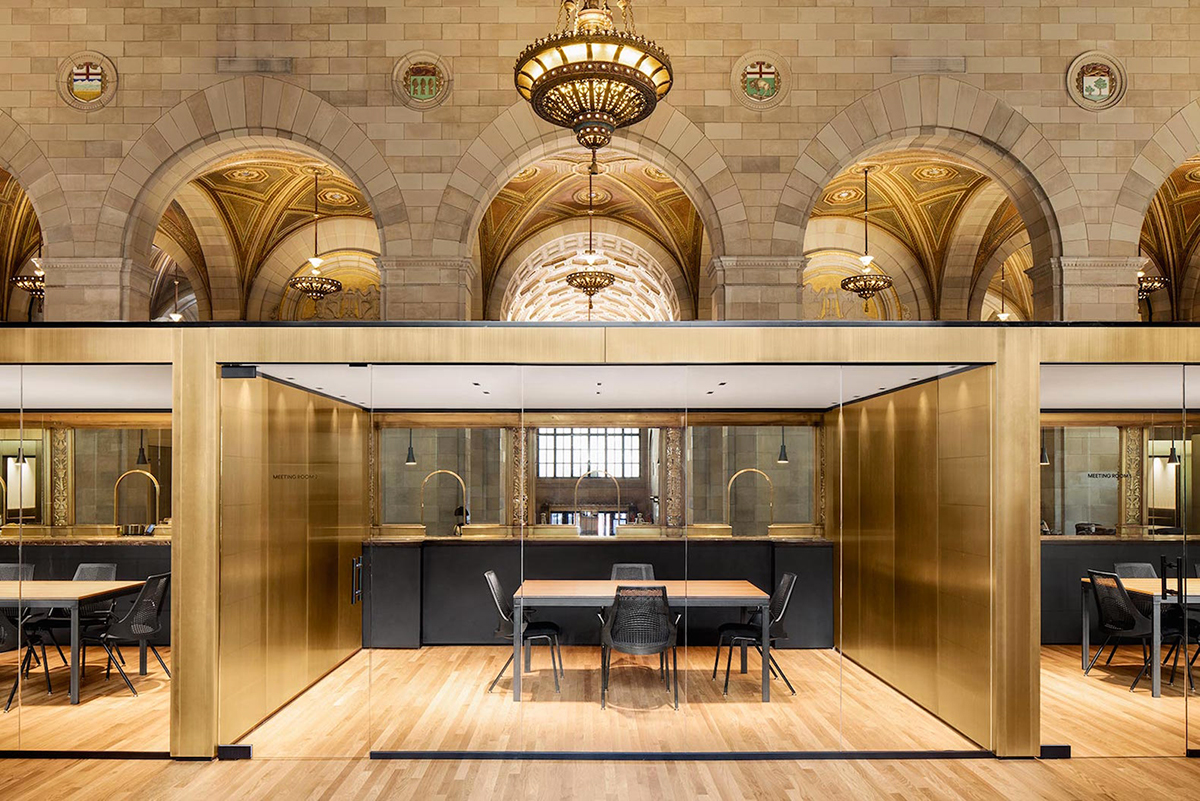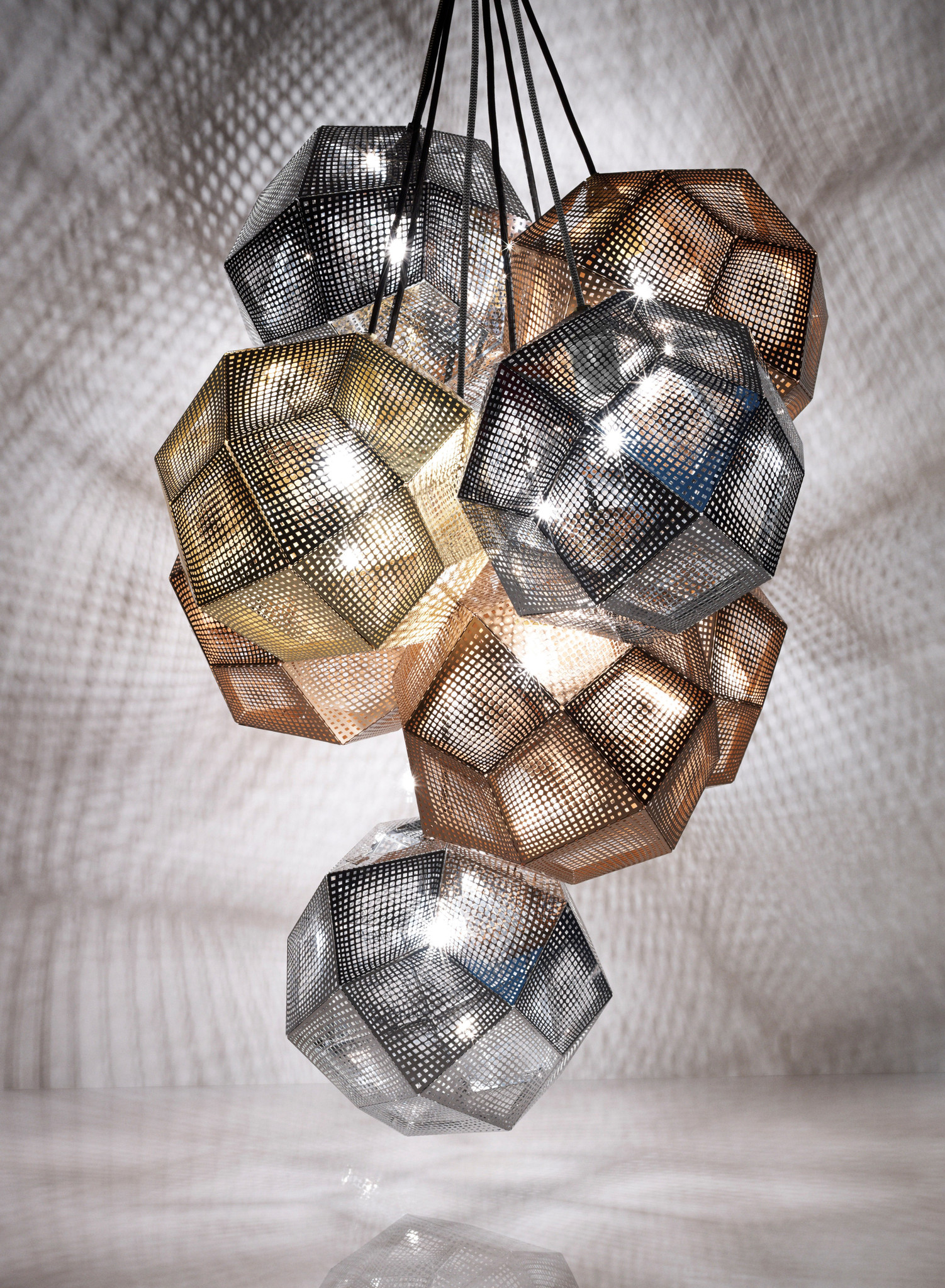Solidwool Designs
Shear beauty.
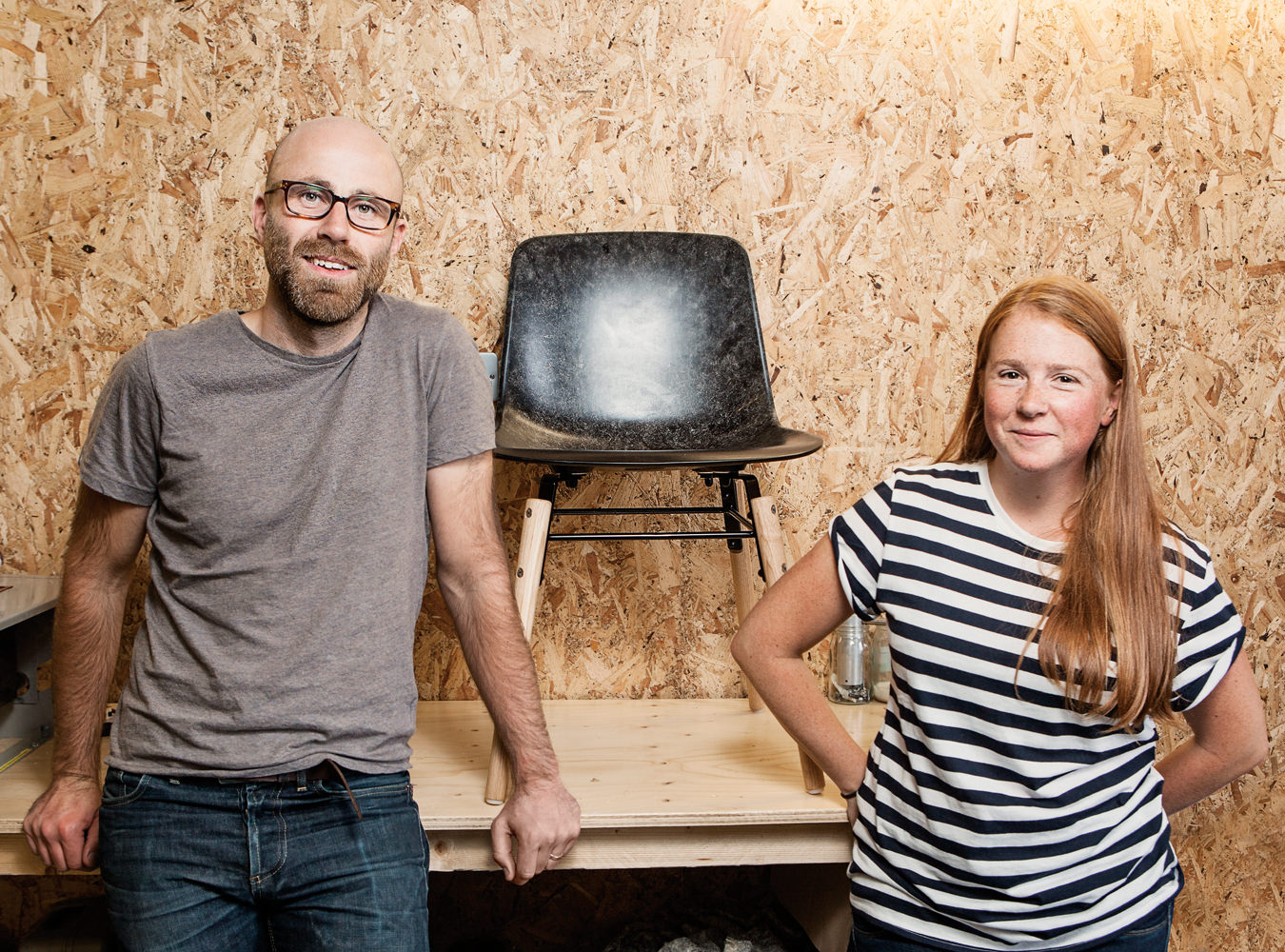
The rolling green pastures of Devon in southwest England are not the obvious location to find a revolution underway. Yet it is here, in the market town of Buckfastleigh, nestled in the Dartmoor National Park, that husband-and-wife team Justin and Hannah Floyd launched their company, Solidwool, two years ago. The rather twee and predictable route of woollen throws, cushions, scarves, socks, and hats is not for them. Instead, they combine wool with bio-resin to form hard and durable surfaces for chairs, tables, and even eyewear. In fact, they see it as a design-savvy and sustainable alternative to reinforced plastics.
Buckfastleigh was once an ancient wool town, but has long since lost the industrial heart so long associated with the trade. The Floyds (he is a product designer, she had a successful career in marketing) began to imagine modern ways of working with wool that might harness the skills they had to make a positive change in the community. As Justin explains, the inspiration came from a struggling national industry: “Originally, we wanted to use wool local to Buckfastleigh, but it was the British Wool Marketing Board who suggested we use Herdwick wool from the Lake District [480 kilometres north of Devon], for the simple reason it was in serious decline, having dramatically lost its commercial value in recent years.” In fact, the wool from Herdwick sheep sells for the shockingly low figure of about 40 pence (79 cents Canadian) per kilo, but the lack of customer demand only added to their interest. “We liked the idea of taking something that had very little value and turning it into something that did have value,” he says.
Regarded as the most hardy of the British breeds, Herdwick sheep roam freely through the high fells of the Lake District for most of the year. The wool is coarse and strong, optimal for the resin composite that the Floyds had in mind. “Herdwick is ideal as a reinforcement material, which is what we wanted,” says Justin. “It also produces a very beautiful material because of the varieties in tone—in time, we hope to work with other British native breeds too, but this was a good place to start.”
The Floyds had the idea of developing wool composite some years before. “When we started investigating what to do with wool, we were aware that we had to come up with an idea that would be viable given that we were new to the wool industry,” says Justin. “My background was designing products for the marine environment, usually made in fibreglass or carbon fibre, so I know how to take composites into production.”
The bio-resin that the Floyds use has none of the toxicity of the resins traditionally employed in composite manufacture. Sourced from waste streams of other processes, such as wood pulp and bio-fuel production, it can claim a minimum 50 per cent reduction in carbon footprint and greenhouse-gas emissions. As Justin explains, this “green chemistry” eliminates a lot of other harmful toxins: “That means we can make durable composites with a much lower environmental impact—our aim is to eventually produce a composite that is 100 per cent natural with 100 per cent of the required quality.”
But of course, without great design, no amount of “green chemistry” could make a product that people actually want to buy. The Floyds are only too well aware of this and openly invite like-minded companies to get in touch if they can see a way of using Solidwool in their own product range. So far, one of the most unexpected and successful such partnerships has been with Fan Optics, a British eyewear brand that has launched a limited-edition collection of five Solidwool frames. There are also Solidwool combs, calendars, and even kitchen knives—the latter a collaboration with artisan Ben Edmonds, who makes his Blok knives by hand from his Derbyshire workshop. “We want to keep developing our own products,” says Justin, “but we will strengthen brand awareness quicker if we can also manufacture for other people.”
The Hembury collection of Solidwool furniture, launched earlier this year, includes a dining chair inspired by the Eames plastic side chair, which was originally manufactured in fibreglass. As Justin explains, “We are about creating things with a story and a purpose that we hope people will want to hold onto and cherish.”





